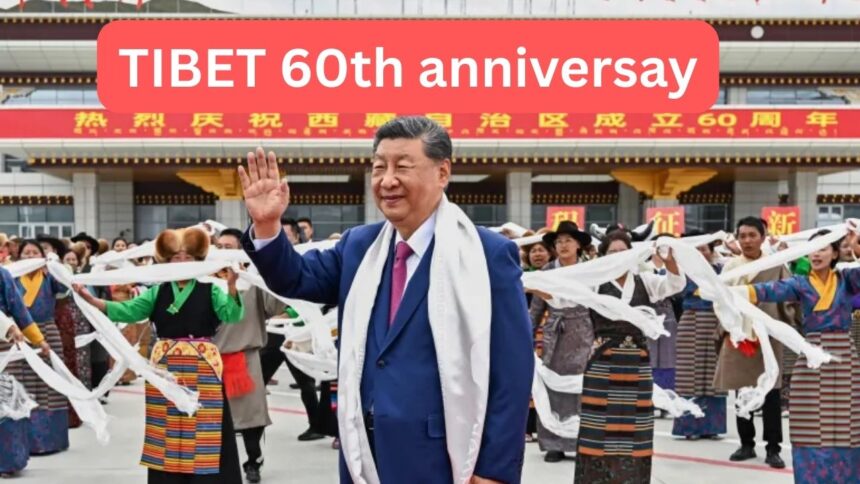Chinese President Xi Jinping made a highly symbolic visit to Tibet this week, commemorating 60 years since Beijing asserted control over the disputed region. The visit, marked by official ceremonies and speeches, has drawn global attention amid ongoing debates about Tibet’s political status and human rights concerns.
Xi’s visit, the first by a Chinese president in nearly a decade, took place amid heightened security and extensive preparations across Tibet’s capital, Lhasa. The Chinese government framed the trip as a celebration of national unity, stability, and development achievements in the region since the “peaceful liberation” of Tibet in 1951.
During the visit, Xi stressed the importance of maintaining the “socialist system with Chinese characteristics” and advancing the economic modernization of Tibet, positioning the region as integral to China’s national strategy. He praised efforts to improve infrastructure, poverty allevia

tion, and cultural integration but emphasized the continued need for vigilance against separatism.
The anniversary has reignited international criticism from human rights organizations and Tibetan exile communities, who regard Beijing’s control as an occupation that undermines Tibetan identity, religious freedom, and autonomy. Calls for increased global pressure on China to respect Tibetan rights have surged in response to the visit.
Analysts view Xi’s visit as a message of resolve and reassurance to both domestic audiences and foreign observers that China will maintain a firm grip on Tibet while promoting its vision of ethnic harmony and national unity.
Looking ahead, the visit is expected to bolster China’s domestic narrative around territorial integrity but may also heighten diplomatic tensions with countries sympathetic to Tibetan causes. The global community will closely watch how Beijing balances its development goals with the enduring demands for Tibetan cultural and political rights.







